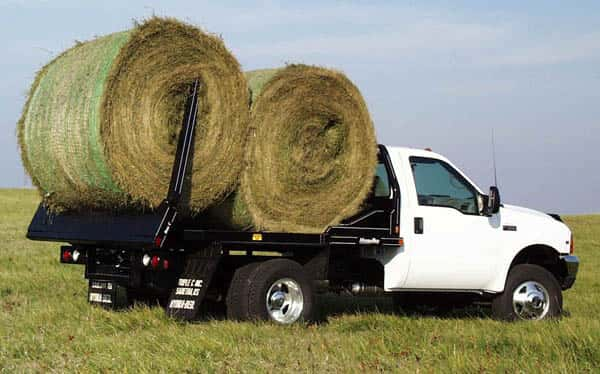Montana’s economy depends on the agricultural output and success of our farmers and ranchers. The productivity of our cattle and livestock sector is one such example of the importance of agriculture in powering out state’s economic success. So how do we transport the livestock that account for 40.9{665a3d7248b9690333c4195c142b942e2311c5bd36bcf4da0d19dbcb5cbdf347} of our agriculture industry? Largely by trucks. This is why we, as farmers and ranchers, are especially concerned by the burdensome Corporate Average Fuel Economy (CAFE) standards that are currently under review by the EPA and Department of Transportation. We hope that our representatives in Washington, including the Montana Delegation of Senator Jon Tester, Senator Steve Daines, and Representative Greg Gianforte, to stand up for Montana agriculture and recognize that the current standards jeopardize rural communities. By forcing farmers and ranchers to have limited, unrealistic transportation options to run our businesses, local economies will be heavily impacted.
It should come as no surprise that the most-purchased vehicle in the United States this year is the Ford F-series pickup truck. The power, utility, size, and speed that these trucks deliver is critical to the work we do both on and off the farm or ranch. Can you imagine anyone trying to haul the type of tonnage that we move in a Prius or any other hybrid?. These higher CAFE standards will force manufacturers to produce vehicles that not all consumers can utilize – and in the process increase the cost of trucks.
Rural consumers will face obstacles to find heavier, more powerful vehicles as prices continue to climb. A study by the Reason Foundation revealed that, “A consumer who drives their pickup for 12,000 miles per year (about the average according to the Department of Energy) purchasing a two-year old Ford F-150 in 2018 would have paid about $5,000 extra for a vehicle that saves them, on average, $150 per year in gas (at a gas price of $2.50/gallon).” Those fuel ‘savings’ just don’t add up.
Another cause for concern is the driving range available on these new mandated vehicles. While there are over 18,000 electric car charging stations across the country, they are few and far between in the rural regions of Montana. If electric vehicles become the primary option for a vehicle there is a real threat to losing power near Alzada and not having any fueling options, a concern we currently do not have to worry ourselves with when driving a combustion engine vehicle.
And while some legislators have argued that battery life will continue to improve over time, the price point for the preferred models will still be out of range. A study by Pacific Gas & Electric found that the premiums of electric pickup trucks with a range of 200 miles, will still be $13,000 more than combustion engine cars. This is a massive expense that can be better spent elsewhere on our operations.
While the standards sound desirable on the surface, they’re unrealistic for a large portion of our country’s population. Not only are the cost of the cars themselves astronomical, but the cost of creating an entirely new infrastructure to accommodate them will put an immense burden on smaller communities.
The United States earned a D+ in a 2017 Infrastructure Report Card by the American Society of Civil Engineers. These crumbling roads are expected to carry heavy vehicles that are transporting goods that are the backbone of the American economy. The billions of dollars directed toward creating new charging stations needed to support the cars that meet the CAFE standards, could be better spent repairing America’s crumbling roads and interstates.
This is not an issue of political party, it is a matter of what is realistic and fair for ALL American communities. The CAFE standards are a blanket approach to an issue that has been approached, and is being worked on, from multiple angles. Montana Farmers Union has championed, and encouraged investments and enhancements, in ethanol and renewable fuels produced by U.S. farmers and ranchers, a focus that has had a wide range of net benefits for the environment. The CAFE standards? A well-intended concept that went a bit far and is on track to place the burden on Montana’s farmers and ranchers, without achieving any of its desired results.
Sincerely,
Alan Merrill
President
Montana Farmers Union


